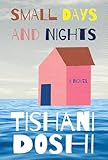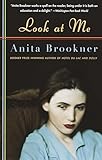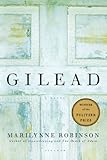Coronavirus has changed our lives in many ways and it has surely transformed our notion of time, as hours and days blend into each other like the melting timepieces in Dalí’s famous painting, intriguingly titled The Persistence of Memory. Both time and memory are central to my novel, Haunting Paris, where the ghost narrator measures time by a spectral clock, an unearthly calendar, and since we tend to read through the prism of our own preoccupations (okay, obsessions), that inevitably colored much of my reading and re-reading this year.
Naturally I turned once more to Marcel Proust’s iconic work on time and memory, and though I usually pick up the first volume, Swann’s Way, this time I began with the last, Time Regained. It’s interesting how the two different translations of the title—In Search of Lost Time and Remembrance of Things Past—emphasize time in the first instance, and memory in the second. I’ll confess I prefer the second: though not strictly literal, it is sublimely literary, a phrase from a Shakespeare sonnet that I love. And also it signals the ways in which we restore what is lost to time’s depredations, through the associative nature of memory, whether a madeleine dipped in tea, or stumbling on uneven paving stones. At a time when I’m housebound and only my imagination is free to roam, it is head-spinning to read the phrase, “if our life is vagabond our memory is sedentary” and wonder if in our ceaseless rush forward, these are days, too, that will be indelibly etched in our minds.
The Plague by Albert Camus was sold out and on backorder at my local bookstore. When I finally got my copy, I read it in a very different frame of mind from readings past, when a plague of sorts was only theoretical. It clearly resonates with our present situation: the initial bafflement, official inaction, fearful acceptance, but also a recognition of being cut off not just from the rest of the world, but from a feeling of normalcy in our own lives. The plague brought in its wake to the city of Oran “that irrational longing to hark back to the past or else speed up the march of time, and those keen shafts of memory that stung like fire.” As Camus describes people longing for the doorbell to ring, for someone to arrive on a train, waiting itself becomes the central action when all comings and goings are curtailed or forbidden.
Although travel is out of the question for the foreseeable future, with my trips to India and France canceled I’ve found myself transported there by books. Two novels set in India gave me a different perspective on the land of my birth, one set in a small fishing village in the coastal south (Small Days and Nights by Tishani Doshi), a part of India less familiar to me; the other in the teeming city of Calcutta where I was born and brought up (A Burning by Megha Majumdar). The former is a story about family secrets and the long shadow they cast on the present, the latter about how increasingly nationalistic political and social forces can destroy an innocent person caught up in a web of circumstance. Amazing how foreign a familiar place can seem.
It’s equally amazing how a foreign country can sometimes feel like home when you have wonderful writers as traveling companions. I’ve long admired her short stories, but I read the novel Green Water, Green Sky by Mavis Gallant for the first time this year (published along with A Fairly Good Time), and it was a wonderful find, a story of an American mother and daughter in Europe and the complicated notions of family whether at home or abroad. As for Between Meals: An Appetite for Paris by A.J. Liebling, if you haven’t yet come across this laugh-out-loud book about food and the French in 1920’s Paris by the legendary writer for The New Yorker, then you’re in for a literary and culinary feast. Every time I read it, I think, c’est délicieux!
Doomscrolling the news left me little time or mental energy to focus on my own writing, but books about books and writers remain catnip to me. My reading list skews more heavily to fiction than non-fiction, but The Library Book by Susan Orlean, about a devastating fire in the Los Angeles public library, reads like fiction, part history, part mystery, but in any case a page-turner, large in sweep and scope. On a smaller scale, an old favorite, Look at Me by Anita Brookner, is also set in a library, and features a librarian whose keen ear and satiric eye turn her into a writer. And I really loved the travails of The Anthologist by Nicholson Baker, in which the protagonist is stuck and cannot finish the introduction to an anthology of poetry. I know the feeling.
One thing 2020 emphatically was not: My Year of Rest and Relaxation, as Ottessa Moshfegh’s novel is titled. It’s been more like my year of unrest and vexation, so I’ve looked for comfort wherever I could: in a well-worn garment, faded and soft, or in binge-watching the Great British Bake-Off even though I’ve never mixed a batch of cake batter, or in reaching for books that calm my soul. I have always found balm in Gilead by Marilynne Robinson. With the arrival of Jack, the Gilead trilogy is now a quartet. We already know from the earlier books how the story ends, yet the love story of Jack and Della, revealed mostly through their long, intimate conversations, is compellingly spotlighted, even though as an interracial couple their love is exiled to the shadows. Jack, who refers to himself as the Prince of Darkness, feels he deserves no forgiveness for his scapegrace past; a minister tells him that punishment is in God’s hands, but if He is “showing you a little grace in the meantime, He probably won’t mind if you enjoy it.” This note of grace, characteristic of Marilynne Robinson, is a welcome reminder that now that the longest night of this year is behind us, we can look towards the light.
More from A Year in Reading 2020
Don’t miss: A Year in Reading 2019, 2018, 2017, 2016, 2015, 2014, 2013, 2012, 2011, 2010, 2009, 2008, 2007, 2006, 2005















